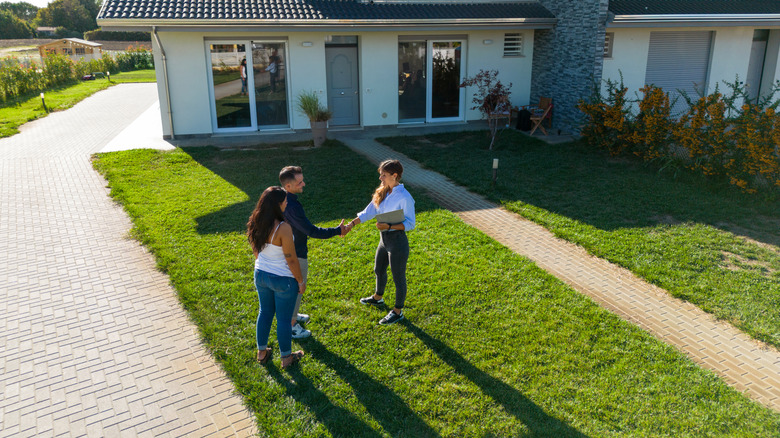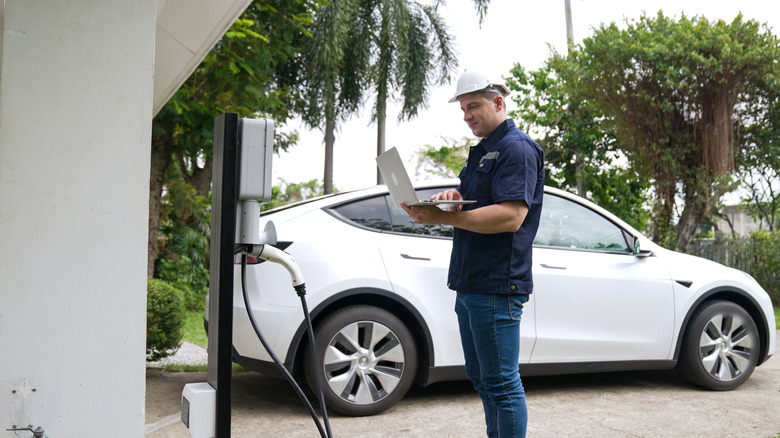The Driveway Feature That More And More Homebuyers Are Looking For
Despite falling gas prices, more and more people are embracing electric vehicles. But in the world of Tesla Model 3s and the many other EVs propelling the market, you still have to regularly charge the battery, a job that, thankfully, can be done at home with the right equipment. There are several things you need to know about updating your garage before buying an electric car, but even if you don't have one to house your vehicle, adding a home charging station of some kind still isn't usually up for debate. For many homebuyers, a dedicated EV charger is one driveway feature that's rapidly shifting from nice-to-have to absolutely mandatory.
There's no doubt the real estate market is different today than during the pandemic, when buyers would overlook hideous floor plans, dated countertops, and foundation issues just to have their offer considered. Today, although inventory is improving, homebuyers remain cautious in the face of elevated interest rates and economic uncertainty, often waiting to find the perfect home with all the right details. According to Realtor.com's Hottest Home Trends Report for 2025, buyers are prioritizing technology more than ever. The report notes a 91.6% increase in listings featuring EV charging since 2024, placing it as the fifth-fastest-growing trend among home features. It's thus no surprise that properties equipped with an EV charging apparatus tend to sell several days faster than average.
As electric vehicles move from fringe to mainstream must-haves, homes that accommodate them are gaining an edge. For now, this is limited to areas that already have high EV adoption and busy public charging stations. But as EVs are expected to account for more than 25% of new car sales by 2030, according to RMI, EV-ready homes won't just stand out; they'll set the standard.
The cost and value of installing an EV charging station
If this driveway feature appeals to you, the first thing you'll need to consider is how much it costs to install an EV car charger. For an average installation in a newer home, which includes all of the hardware, labor, and permits, you're likely to spend around $1,000. But if you live in an older home with an undersized breaker panel or need trenching from the panel out to your driveway, you could face thousands of dollars in additional costs. The same goes for installing an EV charger with smart features, like Wi-Fi connectivity that lets you schedule charging times or track energy usage. The key variables influencing your overall investment include the distance of your EV charger from the electrical panel, the existing panel capacity, whether additional wiring or trenching is required, and any necessary permits or inspections.
So, what can you expect in terms of ROI if you're a seller? It's one way to supercharge your home's selling price. Along with making it stand out from other listed properties and likely move faster as a result, adding a level 2 charger could help your home's resale value. A 2023 study published in Nature Sustainability found homes in close proximity to public charging stations increased in value by over 3%, highlighting the desire of owners to have convenient charging options. And, since it's not likely to turn off a buyer the way a certain flooring finish or countertop material might, installing an EV charging station is one of the most cost-effective and uncontroversial upgrades you can make.

